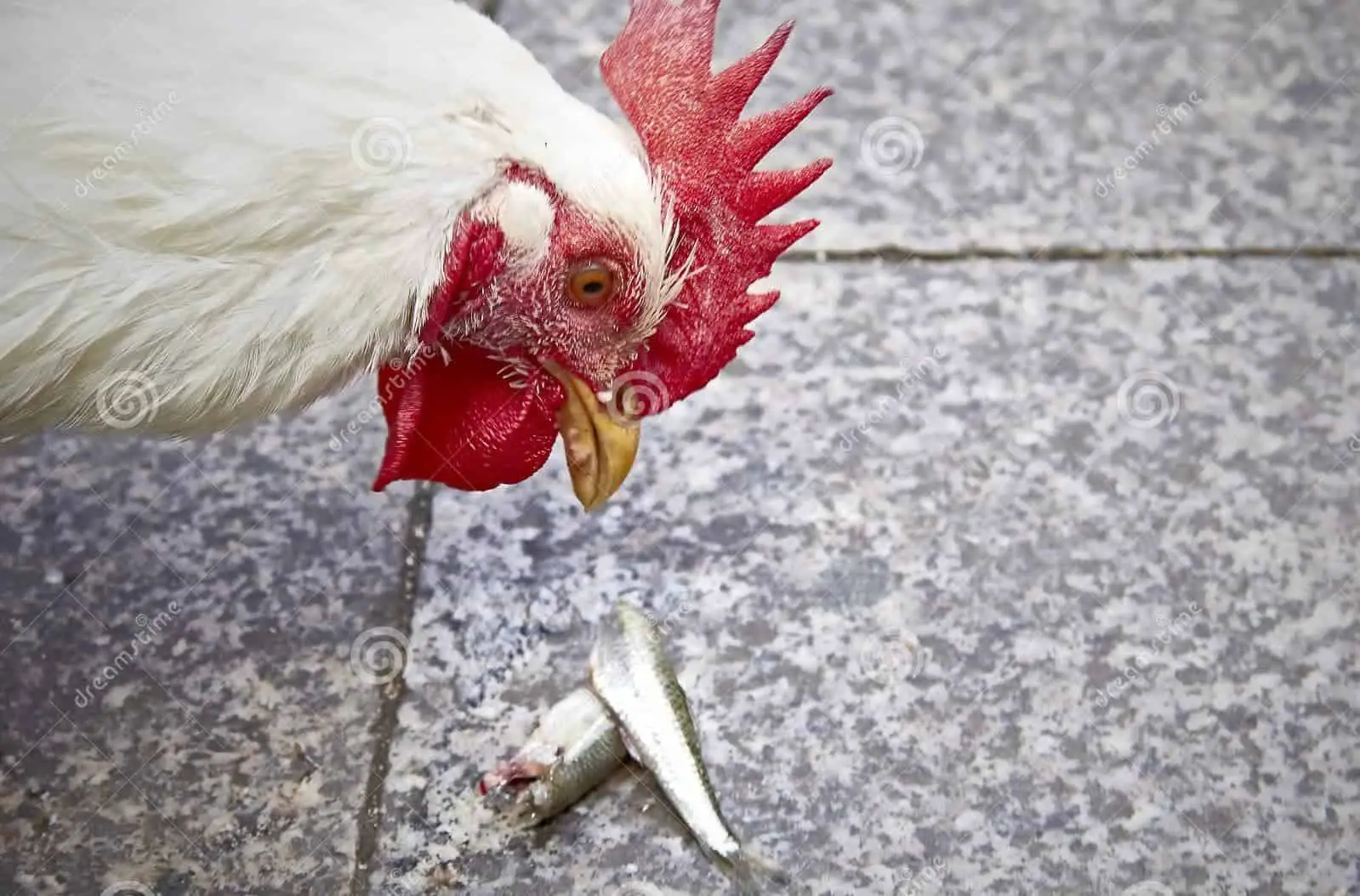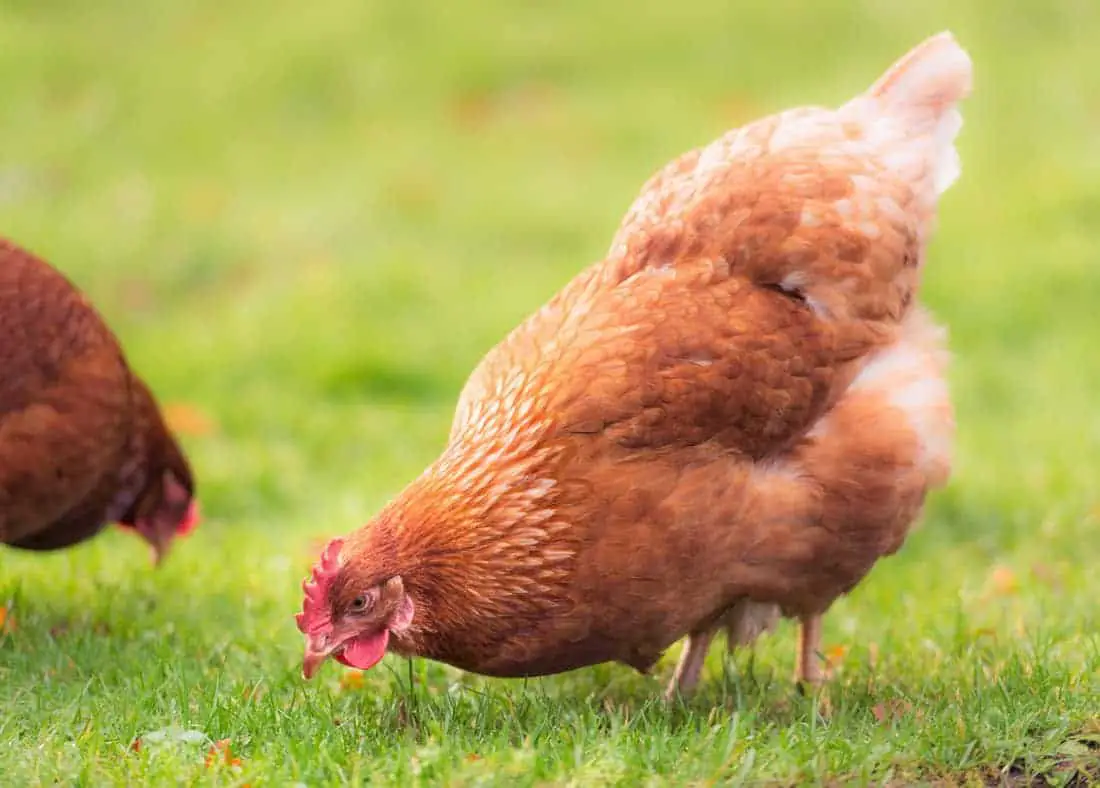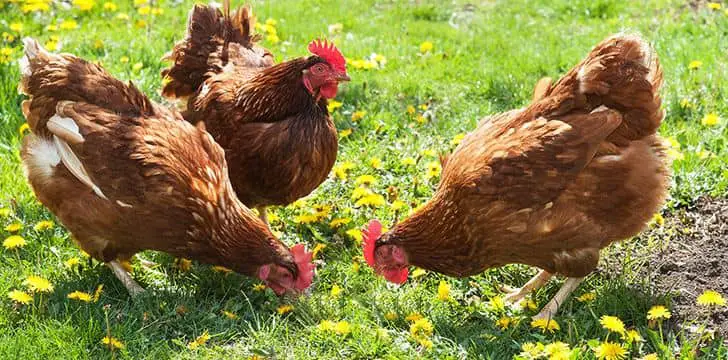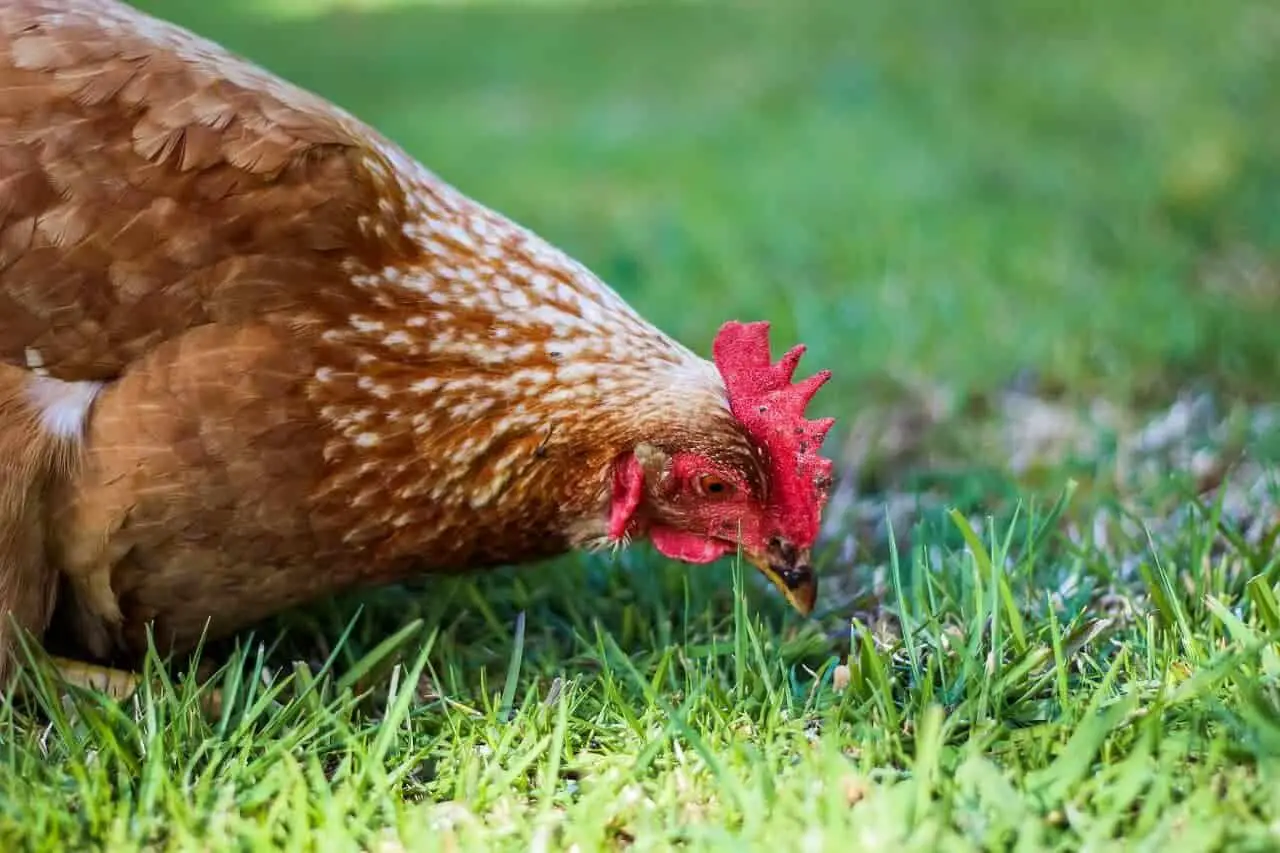Can Chickens Eat Salmon? Raw or Cooked?
Can Chickens Eat Salmon Skin, Eggs, Roe, oil, or Patties? Smoked Salmon?
Yes, chickens can eat salmon skin, eggs, roe, oil, and smoked salmon as long as it’s fresh except for patties.
Can Chickens Eat Fish? Raw or Cooked?
While some chicken owners choose to feed their chickens a strictly vegetarian diet, others will occasionally give them meat like insects, meat scraps and beef. But can chickens eat fish?
Yes, fish is a relatively rich food and a good source of protein and other nutrients for chickens. While chickens can eat raw and cooked fish in pieces but its better to feed cooked.
While chickens may enjoy the occasional worm or insect, eating raw fish can lead to gastrointestinal problems and even poisoning. The high levels of mercury in fish can be particularly harmful to chicken health, leading to neurological damage and other serious problems. For these reasons, it is best to avoid feeding raw fish to chickens.
Cooked fish, on the other hand, is a healthy and nutritious treat that your chickens will love. So, if you happen to have some extra fish lying around, there’s no harm in giving it to your chicken friends. Just be sure to cook it first!
Which Type of Fish Can Chickens Eat?
Fish is a common dietary addition for chickens, but not all types of fish are equally healthy for them. In general, plain white fish are the best choice for chickens. These fish are low in fat and high in protein, both of which are essential for chicken health.
Salmon and herring, on the other hand are high in fat and can cause digestive problems in chickens that should be avoided. So, when feeding fish to your chicken, stick with plain white varieties like Mackerel, sardines, and tuna and avoid fatty fish such as salmon and herring.

Is it Safe for Chickens To Eat Salmon?
Yes, salmon is a good source of protein and essential fatty acids, both of which are important for chicken health. Chickens who eat salmon will have healthier feathers and skin, and they may also lay more eggs.
Salmon is also rich in omega-3 fatty acids, which can help to improve chicken heart health and reduce cholesterol levels. In addition, salmon contains antioxidants that can help to protect chickens from diseases such as cancer.
Of course, there are some risks associated with feeding salmon to chickens. Salmon is known to harbor parasites and bacteria that can be harmful to birds. Salmon can be a source of foodborne illness, and if it is not properly cooked, it can also transmit parasites to chickens.
Salmon also contains high levels of fat, which can build up in the chicken’s fat and obesity and cause fat problems.
However, salmon can also be very high in mercury, which can be harmful to both humans and animals. When chickens eat mercury-contaminated salmon, they can pass the mercury on to the eggs they lay. This can be a problem for people who eat those eggs, as mercury can cause neurological damage in children and adults.
In addition, feeding salmon to chickens can also put the birds at risk of mercury poisoning. Symptoms of mercury poisoning in chickens include lethargy, loss of appetite, and difficulty walking.
Can Chickens Eat Fish Eggs?
Chickens are omnivorous creatures and will pretty much eat anything that you give them. That being said, you might be wondering if it’s okay to feed your chickens fish eggs. Fish eggs are a great source of protein and essential fatty acids and are beneficial for your chickens as long as it’s cooked.
Raw fish eggs can contain harmful bacteria that can make your birds sick. Beware of feeding too many fish eggs to your flock. While they are packed with nutrients, they are also fairly high in fat. Therefore, it’s best to feed them cooked and in limited amounts in moderation as part of a well-rounded diet.

Can Chickens Eat Broccoli?
Chickens will eat just about anything, but that doesn’t mean that everything is good for them. In fact, there are some foods that can be downright dangerous. So, can chickens eat broccoli? The answer is yes, but there are a few things you need to know first. When feeding broccoli to chickens, it’s important to cut it into small pieces.
This will help prevent choking and also make it easier for them to digest. You should also avoid feeding your chickens the stem of the broccoli, as this can be tough for them to digest.
All in all, broccoli is a healthy treat that your chickens will enjoy. Just be sure to give it to them in moderation and in small pieces.
Can Chickens Eat Fish Carcass?
Chickens are opportunistic eaters and will consume animals and plants. Fish carcasses are no exception, and chickens will often scavenge for them when given the chance.
There are a few things to keep in mind, however. First, fish carcasses can be a source of parasites, so it is important to make sure they are cooked properly before feeding them to chickens. Second, fish bones can be a choking hazard, so it is best to remove them before feeding the carcass to your chickens.
Overall, fish carcasses can be a nutritious addition to your chicken’s diet as long as it’s cooked and edible.
Can Chickens Eat Goldfish?
goldfish aren’t among those. While chickens can digest a wide variety of fishes, there are some fishes that should be avoided. One is goldfish.
Goldfish are small freshwater fish that are commonly kept as pets. Goldfish are very high in mercury, which can be harmful to chickens. In addition, goldfish are very oily fish and high in fat, which can lead to obesity and other health problems in chickens.
As a result, it is best to avoid feeding goldfish to your chickens.
If you do decide to feed your chicken goldfish, be sure to do so in moderation and only as an occasional treat.
Can Chickens Eat Tuna In Oil
Just like every omnivores, chickens eat both plants and animals. This gives them a diet that is rich in nutrients and helps them to stay healthy. However, it is important to make sure that they are getting the right balance of nutrients.
For example, too much protein can lead to health problems. This is where tuna in oil comes in. Tuna is a good source of protein, but it also contains a lot of omega-3 fatty acids. These are essential for chickens’ health, but they can be hard to come by in the chicken’s diet. The oil in tuna helps to make these fatty acids more available to the chicken, and so it can be a valuable addition to their diet.
Of course, as with anything, downsides also come. Tuna is high in fat, oil, and mercury so too much tuna in oil can lead to health problems. As a result, tuna offers a great source of protein and vitamins as long as its cooked and in right amount.
Can Chickens Eat Raw Trout?
Some chicken owners like to supplement their chicken’s diet with raw fish. Fish is a good source of protein and omega-3 fatty acids, both of which are essential for chicken health. Trout is a particularly good option for chickens because it is relatively low in mercury. However, it is important to remember that raw fish can be contaminated with bacteria that can make chickens sick. For this reason, it is best to cook trout before feeding it to your chickens.
If you are feeding your chickens raw trout, be sure to chop it into small pieces to prevent choking. You should also remove the bones, as they can splinter and cause internal injuries. Overall, raw trout is healthy and nutritious treat for chickens but in very small amount and in pieces.

Can Chickens Eat Mackerel?
While chickens are typically known for eating seeds, insects, and other small prey, they are actually opportunistic eaters and will consume a wide variety of foods. This includes both plant and animal material. So, can chickens eat mackerel?
Yes, they can. In fact, mackerel is an excellent source of protein for chickens. It is also a good source of omega-3 fatty acids, which are important for maintaining healthy feathers and skin. In addition, the bones in mackerel can provide valuable minerals and nutrients, such as calcium and phosphorus. However, it is important to feed mackerel to chickens in small amount. Too much fish can lead to health problems, such as liver damage or intestinal blockages.
Ultimately, it is best to offer mackerel to chickens as an occasional treat rather than making it a staple of their diet.
How Often Can Chickens Eat Fish or Salmon?
Though unpopular, fish are actually a great source of food for chickens. However, it’s important not to overfeed your chickens, as too much fish can lead to digestive problems. As a general rule of thumb, you should only feed fish to your chickens once a week. This will ensure that they get all the benefits of fish without putting their health at risk.

How Much Can Chickens Eat Fish or Salmon?
In the wild, chickens will often scavenge for dead fish as a source of protein and other nutrients. However, how much fish should you feed your chickens? The answer depends on a few factors, such as the age and health of the chicken. In general, it is safe to feed your chickens up to four ounces of fish a week or better every two weeks.
This can be given all at once or divided into smaller meals throughout the week. If you are feeding your chickens raw fish, it is important to chop it into small pieces to prevent choking. You should also avoid feeding your chickens fish that has been seasoned or cooked with spices, as these can cause digestive problems. When fed in moderation, fish can be a healthy and nutritious addition to your chicken’s diet.
Which one is Better: Canned or Fresh Fish or Salmon
For anyone who loves seafood, there is nothing quite like fresh fish. There is a world of difference between the taste of a freshly caught fish and one that has been sitting in a can for months. The same is true for chickens. Fresh fish is not only tastier, but it is also more nutritious. The nutrients in fish are sensitive to heat, so they start to break down as soon as the fish is cooked. This means that canned fish generally has lower levels of vitamins and minerals than fresh fish. In addition, fresh fish is a good source of omega-3 fatty acids, which are known to have numerous health benefits.
While canned fish can be a convenient and affordable option, there are some downsides to consider. One issue is that canned fish is often high in sodium, which can be detrimental to your health if consumed in excess.
Additionally, the canning process can affect the flavor and texture of the fish, making it less enjoyable to eat.
Finally, canned fish may contain harmful chemicals that can leach into the food. These chemicals can include BPA, which has been linked to a variety of health problems.
As a result, fresh food is way higher better than canned fish. No matter if its salmon, tuna or mackerel or any other fish.

How to Feed Salmon/Fish To Chickens?
Chickens are opportunistic eaters and will scavenge for food if given the chance. This means that they are likely to eat just about anything, including salmon. In fact, feeding salmon to chickens can be a great way to boost their health and nutrition.
Cook First
Fish is an excellent source of protein, omega-3 fatty acids, and vitamins A and D. All of these nutrients are essential for chickens, and can help to promote healthy growth and development. Plus, the taste of salmon is sure to be a hit with your chickens! If you want to feed salmon to your chickens, the best way to do it is to cook the fish first.
This will help to kill any potential parasites or bacteria that might be present in the raw fish. You can either bake, grill, or fry the salmon before feeding it to your chickens.
Cut Into Pieces
You can then chop it up into small pieces or shred it using a fork. It is important to remove any bones, as they could pose a choking hazard.
Feed it
Once the salmon is cooked and shredded, you can add it to your chicken’s regular feed. You can also mix it with other foods, such as fruits and vegetables, to create a balanced meal. Salmon is an excellent source of nutrition for chickens, so be sure to include it in their diet!



